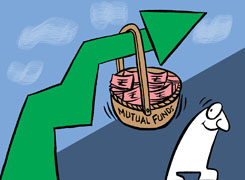Sanjeev Govila | Answer |Ask -Follow
Financial Planner - Answered on Mar 28, 2024
He has over 12 years of experience in financial planning and is a SEBI certified registered investment advisor; he is also accredited with AMFI and IRDA.... more

I have hdfc small cap, multicap, flexicap funds all direct. Since the mid and small cap segment is overheated, can I invest in hdfc nifty 250 small cap index fund and nifty 150 midcap index fund now?
Index fund is replica of the index and it passively managed by the fund manager. They are designed to match the market, not outperform it. So, if you're looking for explosive growth, an actively managed fund might be a better option.
As you have investment only in HDFC AMC, we suggest you to diversify your investment across the AMCs (Asset Management Company). It will help you to reduce the Concentration Risk in your portfolio and provide the necessary diversification to your portfolio.
You may like to see similar questions and answers below
Ulhas Joshi |284 Answers |Ask -Follow
Mutual Fund Expert - Answered on Jun 12, 2023
Ramalingam Kalirajan |11048 Answers |Ask -Follow
Mutual Funds, Financial Planning Expert - Answered on May 29, 2024
Kirtan A Shah | Answer |Ask -Follow
MF Expert, Financial Planner - Answered on Nov 01, 2023
Ramalingam Kalirajan |11048 Answers |Ask -Follow
Mutual Funds, Financial Planning Expert - Answered on May 09, 2024
Mayank Chandel |2636 Answers |Ask -Follow
IIT-JEE, NEET-UG, SAT, CLAT, CA, CS Exam Expert - Answered on Mar 04, 2026
Mayank Chandel |2636 Answers |Ask -Follow
IIT-JEE, NEET-UG, SAT, CLAT, CA, CS Exam Expert - Answered on Mar 04, 2026
Mayank Chandel |2636 Answers |Ask -Follow
IIT-JEE, NEET-UG, SAT, CLAT, CA, CS Exam Expert - Answered on Mar 04, 2026
Mayank Chandel |2636 Answers |Ask -Follow
IIT-JEE, NEET-UG, SAT, CLAT, CA, CS Exam Expert - Answered on Mar 04, 2026
Mayank Chandel |2636 Answers |Ask -Follow
IIT-JEE, NEET-UG, SAT, CLAT, CA, CS Exam Expert - Answered on Mar 04, 2026
Mayank Chandel |2636 Answers |Ask -Follow
IIT-JEE, NEET-UG, SAT, CLAT, CA, CS Exam Expert - Answered on Mar 04, 2026
Mayank Chandel |2636 Answers |Ask -Follow
IIT-JEE, NEET-UG, SAT, CLAT, CA, CS Exam Expert - Answered on Mar 04, 2026
Mayank Chandel |2636 Answers |Ask -Follow
IIT-JEE, NEET-UG, SAT, CLAT, CA, CS Exam Expert - Answered on Mar 04, 2026
Ravi Mittal |707 Answers |Ask -Follow
Dating, Relationships Expert - Answered on Mar 04, 2026
Dr Nagarajan J S K |2623 Answers |Ask -Follow
NEET, Medical, Pharmacy Careers - Answered on Mar 04, 2026
























